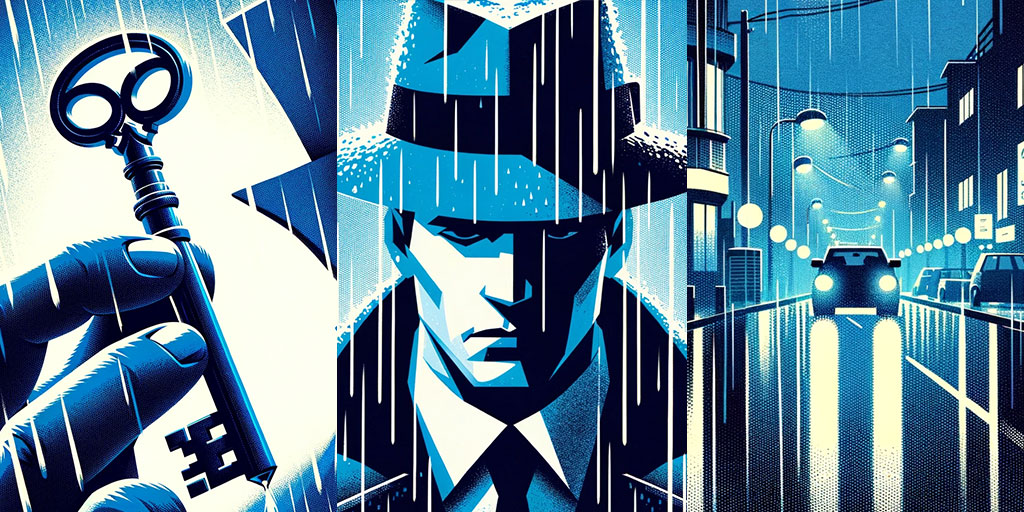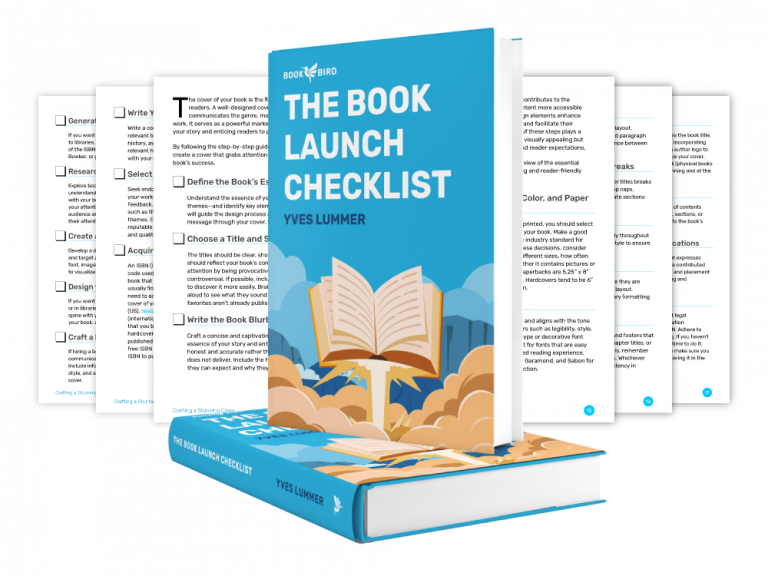Imagine being a detective in the realm of fiction, where every character you write is a mystery waiting to be solved. That’s where a Character Questionnaire comes into play – it’s your magnifying glass, helping you zoom in on the intricate details that make your characters truly alive. In this guide, we’re not just listing questions; we’re embarking on an adventure to uncover the essence of your characters. From their morning routines to their life’s ambitions, get ready to explore every corner of their existence. Let’s turn the page and start this exciting quest together!
What is a Character Questionnaire?

Ever felt like your characters are just names on a page, lacking the spark that makes them leap into the hearts of your readers? Enter the Character Questionnaire, a writer’s secret weapon to breathe life into those names. Think of it as a deep, revealing interview with your characters, where no stone is left unturned.
A Character Questionnaire is more than just a list of questions; it’s a structured approach to understanding the intricate details that make up a character’s persona. It’s like being a detective in your own story, piecing together clues to reveal who your characters truly are. From their favorite color to their darkest fear, every answer adds a layer to their personality, making them more real, relatable, and memorable.
But why is this so crucial? Characters are the heart and soul of your story. They are the ones your readers will laugh with, cry for, and root for. By using a Character Questionnaire, you’re not just creating a character; you’re creating a living, breathing entity with hopes, dreams, fears, and flaws. This tool helps you explore aspects of your characters you might not have considered, leading to richer, more complex beings who can drive your story in unexpected and thrilling ways.
Imagine knowing your characters so well that their actions and reactions flow naturally in your narrative. That’s the power of a well-crafted Character Questionnaire. It’s not just about filling in blanks; it’s about discovering the essence of your characters, their motivations, and how they fit into the larger tapestry of your story.
Character Development Quiz (Easy)

How to Conduct a Character Interview?

Diving into the minds of your fictional characters can be as thrilling as it is enlightening. Conducting a character interview is a key to unlocking their deepest layers. Let’s explore the steps to bring this engaging process to life.
1. Set the Scene
Firstly, create a comfortable environment for your character. Imagine a place where they would feel most at ease to open up – maybe it’s a quaint café, a bustling city street, or the quiet of their own home. Visualize yourself in this setting, sitting across from your character, ready to delve into their world. This mental setup helps you transition into their mindset, making the conversation more authentic and revealing.
2. Craft the Right Questions
Next, it’s time to prepare your questions, but these aren’t just any questions. You need to think deeply about what you want to uncover about your character. Go beyond the surface details like their favorite color or food. Ask about their fears, their dreams, their regrets. What makes them tick? What keeps them up at night? These questions should aim to probe into the corners of their personality and history that even they might not be fully aware of.
3. Master the Art of Listening
As you begin the interview, remember that listening is as important as asking. Your character might reveal things that surprise you, taking your story in directions you hadn’t planned. Be open to these revelations. Sometimes, the most profound character development comes from these unexpected moments. Listen not just to their words, but also to their tone, their hesitations, and what they might be implicitly saying.
4. Keep the Dialogue Real
Ensure that the conversation flows naturally. This isn’t a rigid interrogation but a fluid, dynamic dialogue. If your character strays into an unplanned topic, follow them there. These tangents can be incredibly revealing, offering insights into aspects of their personality or past that you hadn’t considered. Encourage them to express themselves freely, and be ready to explore the paths that open up.
5. Embrace the Awkward Silences
Silences can speak volumes. If your character pauses, seems hesitant, or tries to change the subject, don’t rush to fill the silence. Instead, explore these moments. Why are they reluctant to speak about certain topics? What emotions or memories are they struggling with? These pauses can be gateways to deeper understanding and more complex character development.
6. Conclude Positively
Finally, wrap up your interview on a hopeful or reflective note. Ask about their aspirations, dreams, or what they’ve learned from their experiences. This not only provides a sense of closure to the interview but also leaves you with a deeper, more nuanced understanding of who your character is and what drives them.
Conducting a character interview is a journey into the heart of your story’s cast. It’s an opportunity to explore their complexities, uncover their hidden depths, and bring them to life in your writing. So, set the stage, dive in with curiosity, and be prepared to be surprised by what you discover about your characters.
239+ Character Questions
Welcome to the blueprint for building memorable characters – our list of over 239+ character questions. Here, each question is a building block, adding substance and clarity to the foundation of your characters. As you navigate through this list, you’re constructing characters that are not just memorable but also resonate deeply with your audience.
Basic Characteristics

- First name?
- Last name?
- Nicknames or aliases?
- Age?
- Date of birth?
- Place of birth?
- Current residence (city, country)?
- Ethnicity?
- Nationality?
- Gender identity?
- Sexual orientation?
Physical Appearance

- Height?
- Weight?
- Body build (muscular, slender, stocky, etc)?
- Skin tone?
- Hair color?
- Hair length?
- Hairstyle?
- Eye color?
- Skin condition?
- Makeup?
- Teeth condition (straight, crooked, missing, etc.)?
- Distinguishing facial features?
- Typical facial expression?
- Presence of glasses or contact lenses?
- Presence of tattoos?
- Presence of piercings?
- Any scars or birthmarks?
- Type of body modifications?
- Posture?
- Walking style?
- Dominant hand (right-handed, left-handed, ambidextrous)?
- Physical disabilities?
- Clothing style preference?
- Favorite type of accessories?
- Hand condition?
- Habitual movements or gestures?
- Voice quality?
- Scent preference (perfume, cologne)?
Personality

- Are they an introvert or extrovert?
- Are they more logical or emotional?
- Are they optimistic or pessimistic?
- Strongest character trait?
- Weakest character trait?
- Are they more of a leader or a follower?
- How do they handle stress or pressure?
- How do they deal with conflict?
- What makes them angry?
- How do they express anger?
- How do they handle disappointment or failure?
- How do they deal with criticism?
- How do they handle change?
- What motivates them?
- Are they patient?
- What are their fears?
- How do they cope with loss or grief?
- What are their aspirations?
- What brings them the most joy?
- How do they relax?
- How do they express love?
- What is their sense of humor like?
- How do they behave in social settings?
- How easily do they trust others?
- Are they spontaneous or a planner?
- Are they tidy or messy?
- What are their most valued principles?
- How do they view themselves?
Friends & Family

- How important is family to them?
- What role do they play in their family?
- Who is in their immediate family?
- Do they have any godparents or close family friends?
- What is their relationship like with each family member?
- How does their family background influence them?
- Do they have any family responsibilities or obligations?
- How do they feel about starting their own family?
- Are there any family traditions they hold dear?
- What is their happiest memory with their family?
- What is their most painful memory with their family?
- Are there any family secrets or scandals?
- Who is their role model in their family?
- How do they communicate with their family?
- How important are friends to them?
- Who are their closest friends?
- How did they meet their friends?
- What common interests do they share with their friends?
- How do they spend time with their friends?
- How do they handle conflicts with their friends?
- How often do they make new friends?
Love & Relationships

- What is their current relationship status?
- Have they ever been in love?
- What is their idea of a perfect date?
- Do they believe in soulmates or love at first sight?
- What is their attitude towards love and relationships?
- What qualities do they find most attractive in a partner?
- How important is physical intimacy to them?
- What are their views on romance?
- What are their biggest fears in a relationship?
- Have they ever had their heart broken?
- How do they show affection in a relationship?
- What are their long-term relationship goals?
- What are their views on marriage and commitment?
- How do their relationships impact their other life aspects?
- What has been their most significant relationship so far?
- How do they handle jealousy?
- How do they handle conflict in a relationship?
- What are their biggest relationship deal-breakers?
- How do they deal with breakups?
- What lessons have they learned from their past relationships?
Habits & Routines

- What are their mannerisms and quirks?
- What is their morning routine?
- Do they have any nightly rituals before bed?
- Are they an early riser or a night owl?
- How do they organize their personal space?
- What are their work or study habits?
- Do they have any rituals or habits for relaxation?
- How do they handle boredom?
- How do they unwind after a long day?
- How do they typically spend their evenings?
- What is their favorite time of day?
- What are their weekend routines?
- What are their shopping habits?
- Do they have any rituals for good luck?
- What are their cleaning habits (neat, messy, obsessive, etc.)?
- What are their internet or social media habits?
- Do they have any rituals for inspiration or creativity?
- How do they prefer to communicate (text, call, face-to-face)?
Health & Lifestyle

- What is their overall physical health like?
- How do they manage their mental health?
- Do they have any chronic illnesses or conditions?
- Do they have any vision or hearing issues?
- How do they deal with pain or discomfort?
- What is their attitude towards fitness and exercise?
- Do they follow any specific diet or eating habits?
- Do they have any allergies or dietary restrictions?
- What is their alcohol or substance use like?
- Do they have a regular sleep pattern?
- How do they maintain a work-life balance?
- How do they handle fatigue or burnout?
- How do they approach self-care and wellness?
- What is their approach to personal hygiene?
Hobbies & Interests
- What are their favorite hobbies?
- Do they have any unusual or unique hobbies?
- How much time do they dedicate to their hobbies?
- Do they prefer hobbies that are social or solitary?
- Do they have any hobbies they keep secret or private?
- Do they prefer indoor or outdoor hobbies?
- Have they ever turned a hobby into a profession?
- How do they discover new interests or hobbies?
- What are their favorite books, movies, or TV shows?
- What is their favorite form of entertainment?
- Do they have any collections or collectibles?
- How do their hobbies reflect their personality?
- How do they share their interests with others?
- Have they ever had to give up a hobby?
- Do they enjoy traveling or exploring?
- Do they like reading or learning?
- Do they have any pets?
Work & Education

- What is their current job?
- What do they think about their current job?
- What are some of their past jobs?
- What is their dream job or career?
- How did they choose their current profession?
- What are their career goals or aspirations?
- Have they had any significant mentors in their career?
- Have they ever been unemployed or faced career setbacks?
- Have they ever changed career paths?
- How do they approach learning new things?
- Do they have any side hustles?
- Do they have any entrepreneurial aspirations?
- What are their thoughts on retirement?
- What is their educational background?
- How did they perform academically?
- Did they enjoy their school years?
- What were their favorite and least favorite subjects in school?
- What languages can they speak?
Beliefs & Values

- What are their religious views?
- Do they follow any spiritual practices or rituals?
- Do they believe in an afterlife or spiritual realm?
- What are their beliefs about life and death?
- Do they believe in fate or destiny?
- Do they believe in luck or chance?
- Do they have any spiritual mentors or guides?
- How do their beliefs influence their daily life?
- What are their core moral principles?
- Have their beliefs and values changed over time?
- Do they have any strong political beliefs?
- What are their views on environmental issues?
- Do you participate in any activism or volunteering?
- What are their views on social justice and equality?
- How important is honesty and integrity to them?
- What are their beliefs about human nature?
Past & Future

- What is their most significant childhood memory?
- Have they experienced any major life-changing events?
- What were their teenage years like?
- Did they grow up rich or poor?
- Have they lived in different places or countries?
- How have their past relationships shaped them?
- What lessons have they learned from their past?
- What are their future aspirations or goals?
- How do they plan to achieve their future goals?
- What are their fears or concerns about the future?
- What changes do they hope to see in their life?
- How do they envision their life in 5, 10, or 20 years?
- What are their long-term plans for retirement or old age?
Goals & Challenges

- What is their main goal in life?
- What are their personal goals?
- What are their financial goals?
- Have their goals changed over time?
- What drives or motivates them?
- What would they sacrifice for success?
- How do they prioritize their goals?
- Do they have any professional aspirations?
- How do they handle setbacks or failures?
- How do they measure success?
- What legacy do they want to leave behind?
- What major conflicts have they faced in life?
- What internal struggles do they deal with?
- Do they have any phobias or irrational fears?
- How do they deal with being alone?
- How do they handle confrontation?
- How do they recover from setbacks?
Possessions

- What is their most valued possession?
- Any significant items they always carry?
- Do they have any cherished keepsakes?
- Any inherited or family items?
- Do they own any luxury items?
- How do they treat their belongings?
- What would they save in a fire?
- Items they’ve lost that they miss?
- What’s on their desk or workspace?
- What’s in their pockets?
- What’s in their fridge?
- What’s in their bin?
- What’s in their closet?
- What’s in their garage or storage space?
- Items that reflect their personality?
- Any items with a story behind them?
- Do they lend items to others easily?
- How do they view material wealth?
Each of these questions opens a door to a new aspect of your character’s life, offering a glimpse into their world. Remember, the more you know about your characters, the more vividly they’ll come to life on the page.
Common Pitfalls and How to Avoid Them

Creating characters is an art, and like any art, it comes with its own set of challenges. Let’s shine a light on some common pitfalls in character creation and, more importantly, how you can sidestep them to craft truly compelling characters.
1. One-Dimensional Characters
- Challenge: It’s easy to fall into the trap of creating characters who lack depth, existing solely to serve the plot without their own distinct voices or backgrounds.
- Solution: Give your characters layers. Just like real people, they should have strengths, weaknesses, fears, and dreams. Use the character questionnaire to explore different facets of their personality. Remember, even villains have a soft side, and heroes have flaws.
2. Relying on Stereotypes & Clichés
- Challenge: Relying on clichés and stereotypes can make your characters predictable and uninteresting.
- Solution: Challenge stereotypes by adding unique traits and unexpected qualities to your characters. Think about how their environment, upbringing, and experiences have shaped them into complex individuals.
3. Inconsistent Character Behavior
- Challenge: Characters acting out of character for the sake of plot convenience can confuse readers and break the story’s believability.
- Solution: Stay true to your character’s established traits and motivations. If they must act out of character, ensure there’s a compelling, well-explained reason that aligns with their development.
4. Overloading Characters with Information
- Challenge: Bombarding your character with too many quirks, backstory elements, or traits can overwhelm the reader and dilute the character’s essence.
- Solution: Balance is key. Not every detail you discover in your questionnaire needs to make it into the story. Focus on what’s relevant to their role and growth in the narrative.
5. Neglecting the Supporting Cast
- Challenge: Focusing all your attention on the protagonist can lead to flat, uninteresting supporting characters.
- Solution: Give your supporting characters their own goals, fears, and arcs. They should be integral to the story, influencing and being influenced by the main plot.
6. Forgetting Character Evolution
- Challenge: Characters who don’t grow or change throughout the story can make your narrative feel static and unengaging.
- Solution: Plan for character development. How do the events of the story impact them? What lessons do they learn? Show how they evolve (or resist evolution) in response to the story’s events.
7. Ignoring Reader Expectations
- Challenge: Overlooking the genre and audience expectations can lead to characters that feel out of place or unsatisfying.
- Solution: Understand your genre and audience. While it’s great to be innovative, ensure your characters resonate with and fulfill the expectations of your readers.
By being mindful of these pitfalls and applying thoughtful fixes, you can elevate your characters from mere words on a page to living, breathing entities that captivate your readers’ imaginations and hearts. Remember, the best characters are those that feel real – flawed, complex, and beautifully human.
Frequently Asked Questions
Navigating the world of character creation can raise many questions. Let’s tackle some of the most frequently asked ones, shedding light on the nuances of crafting believable and engaging characters.
What Is A Character Interview?
A character interview is a creative technique where you, the writer, ask your character a series of questions as if they were a real person. It’s like conducting an interview with a fictional being to understand their thoughts, feelings, and motivations. This process helps you delve deeper into your character’s psyche, uncovering details that make them more rounded and believable. It’s not just about what they would do in your story, but why they would do it, giving you a clearer picture of who they are.
What Are Character Analysis Questions?
Character analysis questions are inquiries designed to dissect and understand a character’s nature. These questions explore various aspects of a character’s life and personality, including their background, beliefs, relationships, and motivations. They are tools to analyze why a character behaves a certain way, what drives their actions, and how they interact with the world around them. By answering these questions, you gain insights into your character’s role in the story and how they contribute to the narrative’s progression.
How Do You Write A Character Asking A Question?
Writing a character asking a question involves understanding their voice and perspective. First, consider the character’s background, education, and personality. How would they phrase a question? Is it direct or more reflective? Then, think about the context of the question. What are they seeking to understand or achieve by asking it? Ensure the question aligns with their character development and the story’s plot. It’s not just about the words they use, but the intention behind them, which should be consistent with their character arc.
How Does A Character Questionnaire Enhance Storytelling?
A character questionnaire enhances storytelling by adding depth and authenticity to your characters. It forces you to think about aspects of their personality and background you might not have considered otherwise. This detailed understanding of your characters allows for more nuanced and consistent character development throughout your story. Characters become more than just plot devices; they become real entities with their own desires, fears, and motivations. This depth makes for more engaging and relatable storytelling, as readers are more likely to connect with well-rounded characters.
Character Development Quiz (Hard)








